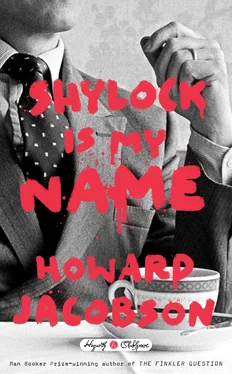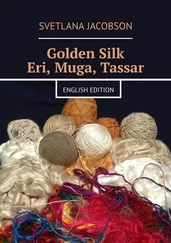“Let’s first of all rally your spirits,” he told the footballer. “I’m eating out tonight with Barnaby and a couple of his old school friends who are up to watch some game or other…”
“Unlikely to be Stockport County against Colwyn Bay,” Gratan said disconsolately. Even his career was ash in his mouth.
“No, I think it’s rugby. Anyway, it’s sure to be jolly.”
The word “jolly” was so alien to D’Anton’s vocabulary that even Gratan registered surprise. It was like hearing a man of God speak profanities.
“I’m not sure I’m in the mood for that,” Gratan said.
“Oh come on. Why don’t you join us for supper and you and I can discuss things in private afterwards?”
Gratan hesitated. Tonight of all nights Beatrice would be expecting him to be with her.
“If that’s not convenient…” D’Anton said.
“No, no, I’ll make it convenient.”
But he wasn’t sure how he was going to do that.
—
As it happened, D’Anton had to deal with a second pickle that evening, to which end he’d invited Barnaby — for this second pickle was his — to join him at the restaurant early.
“So tell me,” D’Anton said.
Barnaby pointed to his left hand.
D’Anton shrugged.
“Don’t you see anything missing?” Barnaby asked.
D’Anton counted his fingers. “Well they all seem to be there,” he replied.
“Ring finger,” Barnaby said.
“That’s there, too.”
“Yes, but ring isn’t.”
“Ah. Would that be the ring—?”
“Yes, that Plury bought me.”
“And you’ve lost it?”
Barnaby pulled the face that always broke D’Anton’s heart. The face of a little boy with no one to turn to. “Not exactly lost,” he said.
“Given it to a whore then?”
“Of course not. I haven’t even accidentally left it with a whore.”
D’Anton could tell that Barnaby was looking for a little praise for this show of rectitude.
“Well I don’t suppose it is any business of mine who you’ve given it to…”
“Why do you fear I’ve given it to someone?”
“Fear? Who said anything about fear ?”
“Fear on Plury’s behalf, I mean,” Barnaby said, wondering if he’d presumed too far on D’Anton’s jealousy.
D’Anton looked deep into Barnaby’s indolent eyes. “Should I fear for Plury?”
“No you should not. I lost it. That’s all there is to it.”
“Then let’s hope Plury believes you when you tell her that.”
“Why shouldn’t she?”
“Because it sounds like an excuse.”
“I lost it.”
“That’s an excuse for carelessness.”
“Christ, D’Anton, get off my case. You’re as bad as she is.”
A great wave of weariness with men and women and their tawdry ring culture overcame D’Anton. He had swapped rings himself when he was younger (always tentatively, it should be said, always because he thought it was what the other person wanted), and he understood the symbolism of both the giving and the losing, but the overblown poesy of men and women swearing eternal fidelity whenever they slipped a hoop of gold around one another’s fingers, and then the commonplace accusations of betrayal whenever one of them slipped it off, as though the whole ritual had only ever been about trust and fidelity, a test that one or other party to it was bound to fail, a trap in other words, a snare as heartless as a springe, a wire loop attached to a twig to catch a rabbit — all this dismayed, depressed and disappointed him. Here was Plurabelle, an exceptional woman in every way, and yet Barney feared that the minute she discovered he had been careless of her love token—“He loves me, he loves me not”—she would turn into a fishwife.
“So why do you come to me with this, if you want me off your case?” D’Anton asked.
“I’m sorry, D’Anton, I shouldn’t have said that. Forgive me.”
D’Anton felt his friend was practising his apology to Plurabelle. He wasn’t sure if that pleased him or it didn’t. Uncomfortable, but flattered, he edged himself off the end of the imaginary bed. “So what would you have me do?” he asked gently.
“Couldn’t you say you borrowed it?”
“I? Borrowed your ring? To do what with?”
“Oh, I don’t know, to give to a whore?”
There was a moment of silence between them, relieved only by the appearance of the sommelier.
“I’m sorry,” Barnaby said again.
D’Anton let his own silence linger a little longer. “I’ll tell you what,” he suggested at last, “I’ll say I took it off you because I feared a stone was loose.”
“It didn’t have a stone. It was a plain gold band.”
D’Anton remembered: a perfect, unbroken band to symbolise their perfect, unbroken love. Well, it had been his doing. Bringing people together was his speciality. Finding for others a happiness he could not find for himself.
“In that case I’ll I say I took it off you to have it polished. I have my own polisher.”
“Did it need polishing?”
“It doesn’t matter.”
“Will she be able to see the difference?”
“There won’t be any difference because there won’t be any ring.”
Barnaby looked puzzled.
“You’ve lost it, remember.”
“Ah, of course. So what happens then?”
“I’ll say I lost it on the way to the polisher.”
“That’s a damn good idea. But better to say you lost it on the way back from the polisher.”
“What difference?”
“I want Plury to know I had it polished.”
“As you choose.”
Barnaby took D’Anton’s hands. “I’m forever in your debt.”
D’Anton’s eyes misted over. “Please don’t say that,” he said.
“All right. But can I at least promise that I’ll never ask another favour from you again?”
“I’d rather you didn’t say that either.”
“I understand,” Barnaby said, though he didn’t.
But his spirits had cleared up so markedly that he hardly looked the same person who’d walked into the restaurant with his hair wild fifteen minutes before.
He settled back in his chair and smiled at his benefactor. “Now, how’s that painting going?” he went on.
“Be patient,” D’Anton said.
“Are you telling me you haven’t persuaded the old skinflint to hand it over yet? What’s the delay? Does he want more money?”
“First let me sort the ring.”
Barnaby settled back even further in his chair. Yes, life had problems, but none that others couldn’t solve for him.
“Here we go again,” D’Anton thought when Gratan Howsome eventually joined them, looking as much like a man in a pickle as Barnaby looked like a man who had come out of one.
To go back a bit:
In such a night as this, Beatrice thought, I shouldn’t be sitting on my own looking at the moon.
Strulovitch had been right in this, if in nothing else: his daughter had not gone far. After leaving home with her boyfriend and her bags, she had gone straight to the Old Belfry to seek Plury’s protection. Gratan’s idea. They had met at Plury’s, twisted eyebeams at Plury’s, made philo-Semitic love at Plury’s, and would now shelter at Plury’s. Plury herself was away for a few days having corrective surgery to her corrective surgery, but in a phone call to Beatrice expressed her excitement and readiness to help, in a phone call to Gratan reproved his naughtiness but applauded his choice, and in a phone call to her house manager ordered the prettiest room to be made ready for the pair. Not the one she’d set aside for their personal use before, which had been pretty enough, but something more respectable and romantic. “Connubial” was the word she was looking for.
Читать дальше












